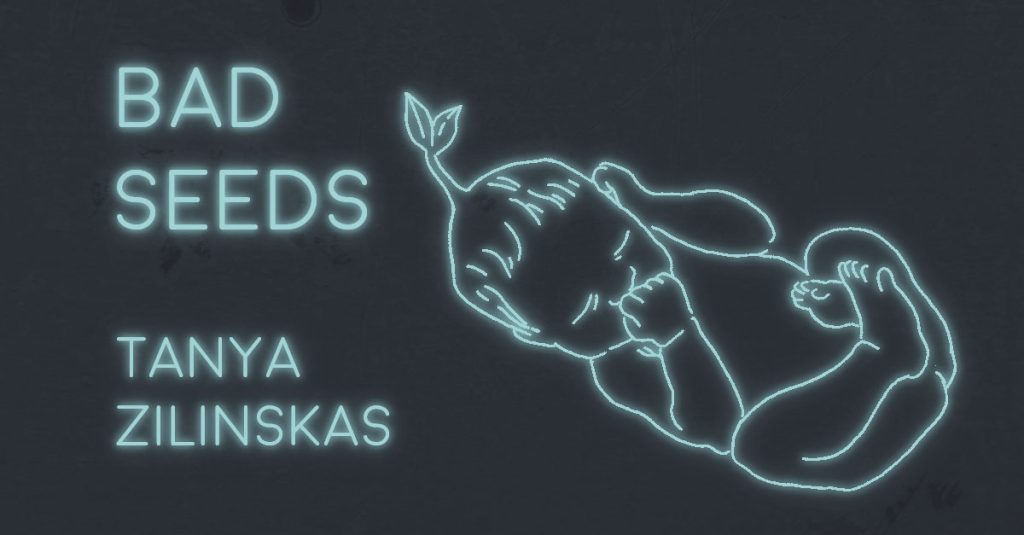You were supposed to turn them over to the Department of Agriculture if you received them. Packages without return addresses showed up in mailboxes all over the country, each one containing a single packet of seeds. The official line was inconsistent but grim: they were from China, they were from Russia, they would kill the crops, they would release pests, they were a Sino-Russian hybrid that would release pests that would kill the crops.
When I received the seeds, I planted them. I planted them because I wanted to see what would happen. I planted them because I didn’t trust the government. Because I was bored. Because with this, I was chosen, and because I had nothing else to grow.
The first child came on Monday, scratching at the patio door, naked and covered in earth. I fed him everything in the pantry and after he ate it all he said to me, have you considered how your environment contributes to your mental health? We spent the rest of the day purging. We took down the television that was hung like art, unshelved the books I hadn’t read since college, and gathered the face creams that lacked the alchemy of beauty. We threw it all in the trash and rolled the bin out to the curb. Then we sat on the porch until we were sunburned, eating blackberries from the bushes that had taken over the yard.
On Tuesday the second child came. This is always how creation goes, one new thing a day, one day after another. The second child said nothing until that night when the neighbors’ dog barked itself hoarse. I can’t bear when something’s in pain, the second child said. The children and I went into the neighbors’ yard, unleashed the dog, and opened the gate. We ran after it in the street, barking and howling, darting between the headlights of bleating cars.
Wednesday’s child was already yellow when he came to us, and by noon he had withered away. We buried him under the blackberries so we could eat him next summer. Thursday’s child went straight into my bedroom and refused to come out. Friday’s child was a pyromaniac, so Monday, Tuesday, and I spent the day dousing everything with water. When questioned, Friday said some things needed to be burned. Saturday arrived and said they were the last of the children. They were excruciatingly beautiful; we learned nothing they said could be trusted.
Monday had grown tired of all this. He said there were too many children; this had gone too far. He said we had grown too wild, and I agreed, but there was no putting them back in the box.
On Sunday, I picked the last of the blackberries and fed them to the children for breakfast. I played Dolly Parton’s Wildflowers and told them to listen to the lyrics—that I was the garden setting them free—but the children didn’t like country music or metaphors. I opened the front door and told them to go forth and multiply. I took a picture of us before they left with the sun just right in the sky. I watched my seeds go out into the world, and then I went back inside and locked the door.

